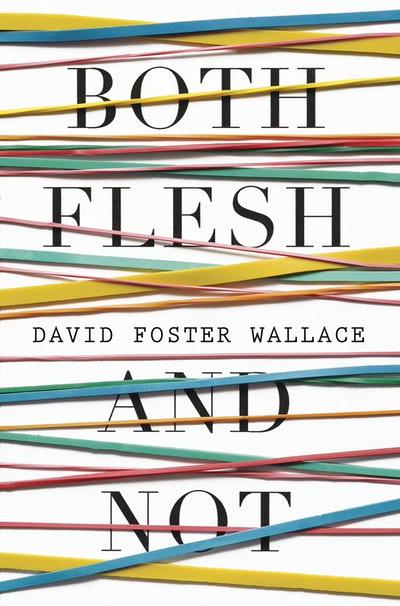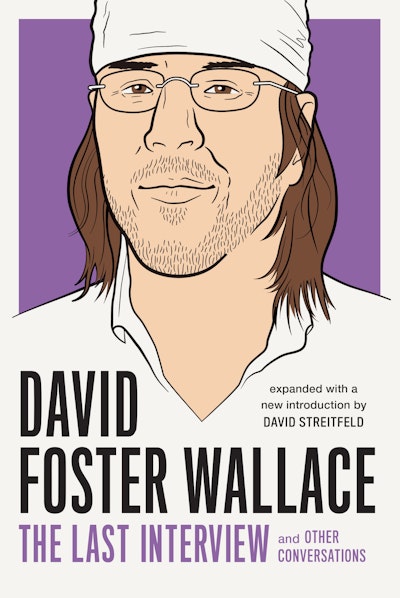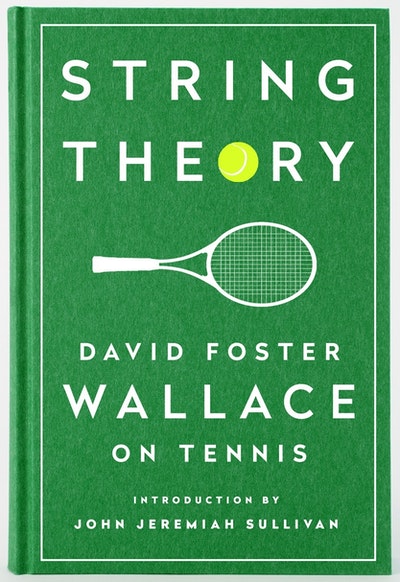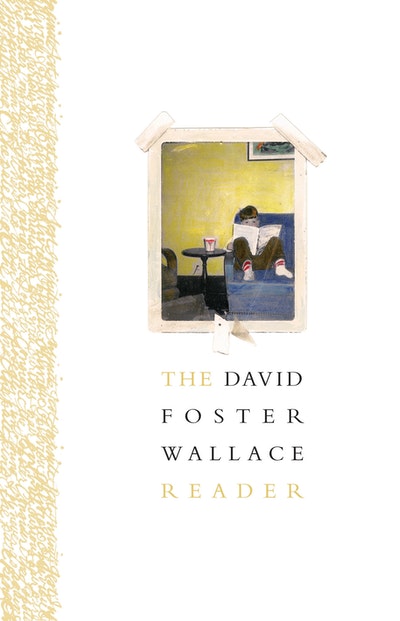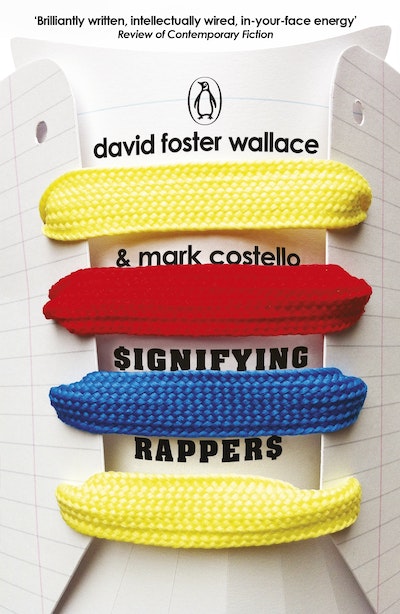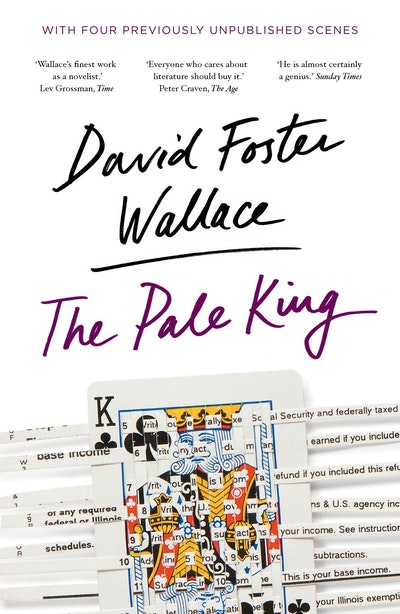- Published: 24 October 2012
- ISBN: 9781926428185
- Imprint: Hamish Hamilton
- Format: Trade Paperback
- Pages: 336
- RRP: $34.99
Both Flesh And Not
- Published: 24 October 2012
- ISBN: 9781926428185
- Imprint: Hamish Hamilton
- Format: Trade Paperback
- Pages: 336
- RRP: $34.99
Essential reading if one wants to understand the development of his thought. In his ambitious attempt to realise the literary project sketched out in these early essays – to reconcile head and heart, to transcend the perceived limitations of his own time – he was to create the extraordinary body of work he has left us.
Saturday Age
In this sweeping posthumous collection, some essays written as far back as the mid-1980s ring true today ... For his followers, this omnibus will confirm that with Wallace's death in 2008, the literary world lost quite a promise.
Daily Telegraph
The prose isn't showing off; it effortlessly catches the fleeting thought. You have the illusion that you're being talked to, one on one, by an extraordinarily intelligent friend.
Weekend Australian
What makes Wallace's work so likely to stand the test of time is how rigorously and aggressively it bent forms into the shape of modern thought ... As an essayist, he really was alone in pushing an ever newer journalism into the 21st century. Both Flesh and Not gathers essays Wallace wrote concurrently to the two collections he published during his life but did not collect while living, and it charts the astonishing journey of how he made this happen. It begins, beautifully, with a 2006 essay about watching Roger Federer play tennis ... Wallace had the most sensitive cultural antennae of his generation, and in these essays he goes to war with them, using them time and again, at first, to describe every facet of a thing, to show you its many corrugated surfaces and contradictions, before admitting it is the thing's mystery that makes it beautiful ... Every one of these pieces, even the tiniest introduction to a collection of prose poems, hums with Wallace's contrary energy ... They show a mind at work, and it was one of the best this country has seen.
John Freeman, Boston Sunday Globe
A collection spanning 20 years of Wallace's nonfiction writing on subjects as wide-ranging as math, Borges, democracy, the U.S. Open, and the entire spectrum of human experience in between ... Both Flesh and Not is excellent in its entirety and just as quietly, unflinchingly soul-stirring.
Maria Popova, The Atlantic
One of the best writers of our time ... If you've never read David Foster Wallace before, his masterful study of Roger Federer, included in this anthology, is an ideal place to start.
Steph Opitz, Marie Claire
I doubt there's a single person reading this who needs me to explain why they should be excited about a new collection of previously uncollected David Foster Wallace essays. His nonfiction is born out of the sort of bitingly perceptive but deeply compassionate humanity our world needs more of, and we should savor every last bit of it he left us.
Rian Johnson, Wall Street Journal
Wallace was his generation's most eloquent cartographer of the Total Noise society ... He charted the absurdities and sadness of life in this land of hype and hyperbole, and he did so in incandescent prose that was as magical as it was elastic ... His expansive, metastasizing narratives and baroquely detailed descriptions represented efforts to pin down this increasingly incomprehensible reality with exactitude and nuance ... At their best these essays remind us of Wallace's arsenal of talents: his restless, heat-seeking reportorial eye; his ability to convey the physical or emotional truth of things with a couple of flicks of the wrist; his capacity to make leaps, from the mundane to the metaphysical, with breathtaking velocity and ardor.
Michiko Kakutani, New York Times
Scarily astute ... Published originally between 1988 and 2007, these essays demonstrate Wallace's interdisciplinary approach to both pop culture and abstruse academic discourse ... For Wallace devotees, these essays are required reading.
Booklist
David Foster Wallace left the essay form in a different state than it was in before he wrote. He wrote of Federer that he had 'exposed the limits, and possibilities, of' his sport. Wallace himself, with mystery and metaphysics galore, did no less for the essay.
Michael Robbins, Chicago Tribune Printers Row
Like previous collections of David Foster Wallace's essays, Both Flesh and Not displays the late author's vast intellectual curiosity ... The book also features selections from Wallace's much admired list of dictionary words, as well as twenty-four word notes that he contributed to the Oxford American Writer's Thesaurus. Both showcase Wallace's ever-evolving, intimate, and often humorous relationship with language.
New Yorker
David Foster Wallace's essays show a man struggling to figure out the complexities of discernment and judgment ... It isn't merely wonderful writing. It is a model of adult citizenship ... In Both Flesh and Not, he is at the top of his game.
David Masciotra, Daily Beast
A brawny, brainy collection.
Tyrone Beason, Seattle Times
It's refreshing to re-encounter David Foster Wallace's voice ... With impressive precision, Wallace describes the kinetic beauty and mesmerizing power of 'Federer Moments'. Meanwhile, 'The Nature of the Fun', a brilliant 1998 essay on fiction writing, builds to a Wallace Moment: an articulate, emotionally honest nudge toward a hard truth—in this case, that the fun of writing emerges from confronting the unfun parts of ourselves.
Laura Pearson, Time Out Chicago
Wallace's work impresses itself on you on many levels, perhaps none more piercingly pleasurable than in this fussy, old-fogy-to-the-point-of-crankiness way he wants to get things right, while also acknowledging the impossibility of doing so ... If there has ever been a laureate of difficulty and its virtues, of not just accepting what things seem to be but fighting toward the 'very important truth,' it's David Foster Wallace.
Thomas Beller, San Francisco Chronicle
If you like essays, vocabulary lists (blepharitis! gastine!), footnotes (so many footnotes), and/or DFW, you need this.
Largehearted Boy
The best passages are those that celebrate words and the author's relationship with them ... It is a treasure trove for those who love the complexities of language.
Josh Davis, Time Out New York
David Foster Wallace wrote some of the most memorable nonfiction of the past quarter-century ... Wallace's writing always illuminates, and if only in the reflections or refractions of his light, always makes us less stupid. Above all, he is an essential writer on thinking, on consideration, on the line between flesh and not, between body and mind, between their tension and their symbiosis. Read this, or anything of his you can.
Greg Walkin, Lincoln Journal Star
